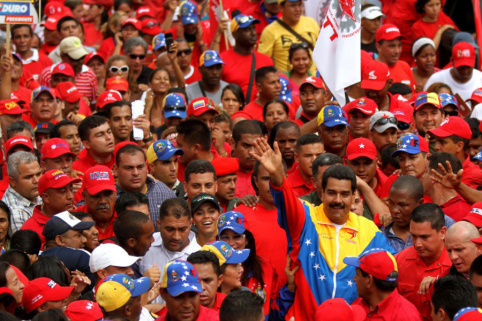
On Sunday 30 July, so-called elections took place to a so-called Constituent Assembly in Venezuela. It is important, for the future, the revolution, and democracy, not to fool ourselves about the meanings of the words being used here.
For all Venezuelans, there can be no doubt: what was elected today has nothing in common with a sovereign constituent assembly. By “a sovereign constituent assembly.” we mean one which exercises power.
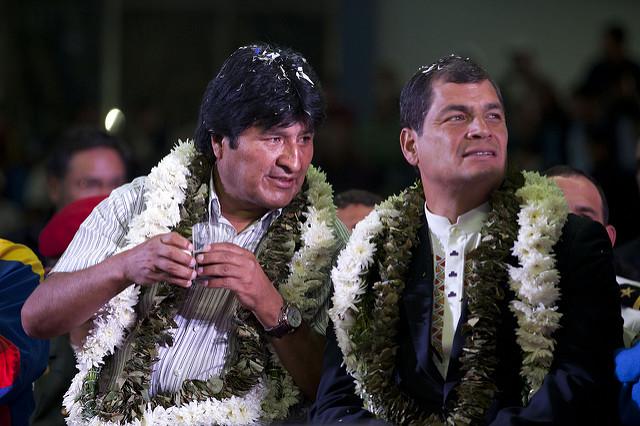
As rightwing governments take power in Argentina, Brazil, and elsewhere across the region, Ecuador’s leftwing Alianza País (Country Alliance, AP) and Bolivia’s Movimiento al Socialismo (Movement Towards Socialism, MAS) and Bolivia have managed to hold onto power.
Book Review
By: Dan La BotzJuly 24, 2017

Jeffery R. Webber. The Last Day of Oppression, and the First Day of the Same: The Politics and Economics of the New Latin American Left. Chicago: Haymarket, 2017. 327 pages. Index. Tables.
Beginning in the late 1990s the Pink Tide began to roll in across much of South America, bringing to power elected leftist governments in Argentina, Bolivia, Brazil, Chile, Ecuador, Uruguay and Venezuela. While these administrations were not all the same—Argentina and Brazil appeared to be more social democratic and Bolivia and Venezuela more radical—they represented a new moment in the history of the Latin American Left.
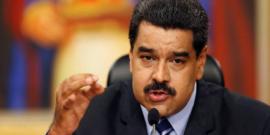 In recent weeks, a number of Venezuelan specialists on the left side of the political spectrum have published and posted pieces that place them in an anti-Chavista, “ni-ni” position that consists of “a plague on both your houses” with regard to Maduro and the Venezuelan opposition. Certainly, at this moment the Chavistas are playing hard ball; the options available to them are limited.
In recent weeks, a number of Venezuelan specialists on the left side of the political spectrum have published and posted pieces that place them in an anti-Chavista, “ni-ni” position that consists of “a plague on both your houses” with regard to Maduro and the Venezuelan opposition. Certainly, at this moment the Chavistas are playing hard ball; the options available to them are limited.
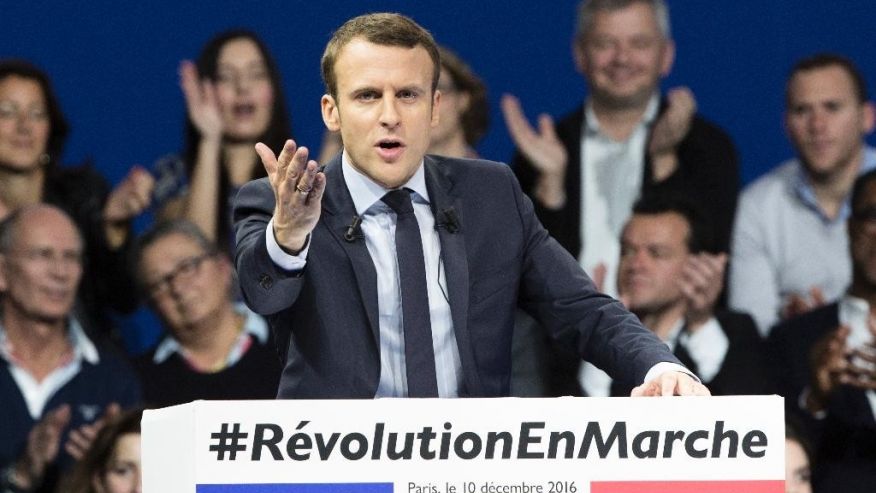
At one level, France’s 2017 elections were a huge triumph for global capital. A young and very modern neoliberal candidate, Emmanuel Macron, won huge majorities for his new political party, On the Move (En Marche), in both the presidential and the legislative elections. At another level, however, Macron’s pathway forward is fraught with challenges, both from a long stagnant economic and a restive French public, many of whom stayed away from the final round of voting.
 The following is an excerpt from a book about Trump, The Establishment, and the Resistance, that will be published in French by Syllepse early next year. – Dan La Botz
The following is an excerpt from a book about Trump, The Establishment, and the Resistance, that will be published in French by Syllepse early next year. – Dan La Botz
The Fourth of July celebrates the launching of the American Revolution and the founding of the nation. Americans have long prided themselves on having the most democratic country on earth, a model for the world. Yet, while American politicians and the media today frequently praise the “founding fathers” of the United States for establishing the country’s democratic institutions, the truth is that nothing could have been further from their minds.
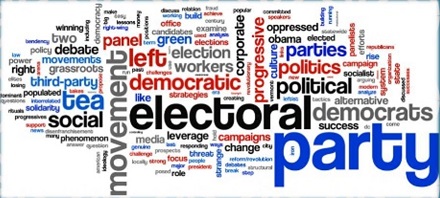
Democratic Socialists of America (DSA) is singular on the left as being both a broad radical socialist organization, encompassing left social democrats, Marxists and even a smattering of anarcho-syndicalists, combined with a strong face toward electoral politics. But an electoral orientation per se is not and cannot be the common denominator of our work. It is true that without an electoral face, any political organization is hamstrung and those on the left who argue that support for any Democrat anywhere is treasonous paint themselves into a corner. Electoral politics on the level it can be rationally conducted is worth doing. That, for me, is not in dispute. Its place in our work is what is problematic. Thinking in terms of power is about more than electioneering.
A Report from Great Britain

The 8 June election result has re-energised Labour’s activist base and helped put basic working-class demands back on the agenda. The increase in turnout among young voters, and the huge Labour lead among young voters, signal a major shift in British politics. All of this opens up a new period of Labour revival and recomposition.

A few days ago, Paul Krehbiel—a member of the Committees of Correspondence, an organization with roots in a split from the Communist Party USA in 1991—had an essay posted on Portside entitled "United and Popular Front: Lessons from 1935-2017."

The good news this May was that French voters rejected far-right Marine Le Pen by a two-to-one margin in the second round of the Presidential election.
The bad news was that France ended up electing Emanuel Macron, an efficient technocrat who consciously incarnates French capital’s need to eliminate the "French exception" and level the wages, rights and benefits of the French common people down to the average of the European Union (which includes Romania and Bulgaria).

Since 2004, members of the Richmond Progressive Alliance (RPA) have won ten out of the sixteen city council and mayoral races they have contested in their majority minority city of 110,000.

The time has come to bid farewell to a moribund party that lacks imagination, courage and gusto
The distinctive feature of these bleak times is the lack of institutional capacity on the left – the absence of a political party that swings free of Wall Street and speaks to the dire circumstances of poor and working people. As the first 100 days of the plutocratic and militaristic Trump administration draw to a close, one truth has been crystal clear: the Democratic party lacks the vision, discipline and leadership to guide progressives in these turbulent times.

Tens of thousands of Americans in some 200 cities and towns from New York to San Francisco participated in “Tax Day” marches on Saturday, April 15 to demand that President Donald Trump release information about his tax payments. Some protestors marched at the White House and others at the Trump mansion at Mar-a-Lago, Florida.
Largely organized through Democratic Party groups like Indivisible, the Tax Day demonstrations were peaceful but spirited affairs. Protestors around the country chanted slogans such as “No more secrets, no more lies.” Many carried signs and banners reading “What are you hiding?” and “Show your taxes!” One sign read “King George didn’t listen to us either,” a reference to the taxation issues of the 1760s that led to the American Revolution of 1776.
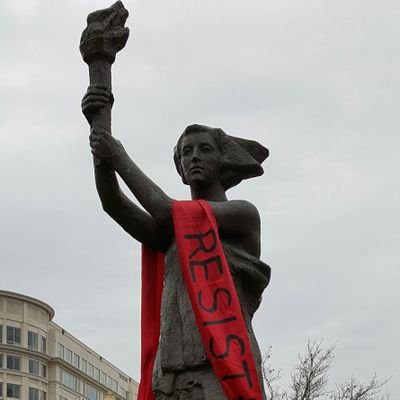
The first few weeks of Donald Trump’s presidency has seen an amazing explosion of mobilizing to oppose him and his administration on oh-so-many levels. And that has been heartening.
But it is not enough.

In his article calling on socialists to run in Democratic primaries, Daniel Moraff argues that some of the barriers to running candidates in Democratic primaries, such as money and incumbency, also apply to third parties. So they do. He points to the fact that socialist and community organizer Debbie Medina got 40.56% of the vote in the 2016 NY State Senate race in Brooklyn’s 18th District as opposed to 13% for a Green candidate for mayor in Baltimore. So, it’s easier to run as a Democrat.

On the curious collaboration between the cultural left and the economic right, and how to overcome it.
For all the hideous acts of Trump’s administration over the past six weeks there’s something of a silver lining to our current political moment: we’re now witnessing the emergence of what may well prove to be the most energetic and popular protest movement since the 1960s. And yet it’s worth wondering what, broadly speaking, this dissent will stand for apart from spirited opposition to Trump and his administration.

Night had fallen on the Atlanta Stadium in the city of Buenos Aires on November 19, and as “The Internationale” began to blare from the loudspeakers, more than twenty thousand people at the Trotskyist Left Front rally stood up, their fists held high, to sing the international workers’ anthem with a single voice.
review
Greece and the Syriza Experience
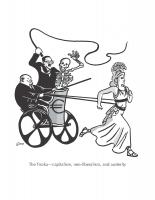
In very different ways, Helena Sheehan’s The Syriza Wave: Surging and Crashing with the Greek Left and Looting Greece: A New Financial Imperialism Emerges by Jack Rasmus look back over the period of the Greek debt crisis, and the parallel rise and fall of Syriza, and try to take stock.

Donald Trump likes to think that he has not only won an election but “built a movement.” And to judge by his first week in the White House office, he has — just not in the way he thinks.
By: Micah LandauFebruary 9, 2017

It’s been two weeks since Donald Trump’s inauguration sparked some of the largest rallies in American history. Each week since has also seen demonstrations, culminating in those that broke out at airports across the country at the end of January to protest the president’s new Muslim ban barring travel from seven predominantly Muslim countries. Mass protests are in large measure a bellwether of popular sentiment. They carry an implicit threat that politicians who defy the will of the people will be voted out, but that threat must be channeled strategically, or it will dissipate.
Italy

On December 4, 2016, the Italian electorate was asked to vote on a government-proposed constitutional reform, and the vote dealt the government and Prime Minister Matteo Renzi’s plans a ringing blow. The referendum was a political gambit on which the PM bet everything, yet 59.1 percent of voters rejected the reform. Barely an hour after the polls closed, Renzi announced his resignation.



 In recent weeks, a number of Venezuelan specialists on the left side of the political spectrum have published and posted pieces that place them in an anti-Chavista, “ni-ni” position that consists of “a plague on both your houses” with regard to Maduro and the Venezuelan opposition. Certainly, at this moment the Chavistas are playing hard ball; the options available to them are limited.
In recent weeks, a number of Venezuelan specialists on the left side of the political spectrum have published and posted pieces that place them in an anti-Chavista, “ni-ni” position that consists of “a plague on both your houses” with regard to Maduro and the Venezuelan opposition. Certainly, at this moment the Chavistas are playing hard ball; the options available to them are limited.
 The following is an excerpt from a book about Trump, The Establishment, and the Resistance, that will be published in French by Syllepse early next year. – Dan La Botz
The following is an excerpt from a book about Trump, The Establishment, and the Resistance, that will be published in French by Syllepse early next year. – Dan La Botz













